How Often Should Water Heaters Be Replaced in Chandler?
Water heater maintenance is often neglected by homeowners until it's too late and they find themselves without hot water. To avoid such inconveniences and potential hazards, it is crucial to prioritize the upkeep of your water heater. This comprehensive guide, provided by our expert plumber specializing in water heater repair and replacement, will outline the key indicators that signify the need for a replacement. Additionally, we will address the essential factors to consider when purchasing a new system. By following this guide, you can guarantee a consistent supply of hot water for your family.

What is the typical lifespan of water heaters?
When it comes to our daily routines, hot water heaters are essential for showering, doing laundry, and dishwashing. However, the lifespan of these appliances can be affected by different factors. On average, a hot water heater will typically last between 8 and 12 years.
Tankless water heaters typically enjoy a lengthier lifespan in contrast to conventional units.
Water heaters are an essential part of any home, providing hot water for various tasks such as bathing, washing dishes, and doing laundry. However, it's important to note that improper installation or neglecting regular maintenance can significantly reduce the lifespan of a water heater.
Consistent upkeep and regular inspections are crucial to ensure efficient performance and prolong its lifespan. By taking proactive measures to maintain your water heater, you can avoid costly repairs and replacements down the line.
It's important to consider factors that can impact the lifespan of your unit. Excessive daily usage and the presence of hard water can accelerate wear and tear, leading to a compromised effectiveness over time.

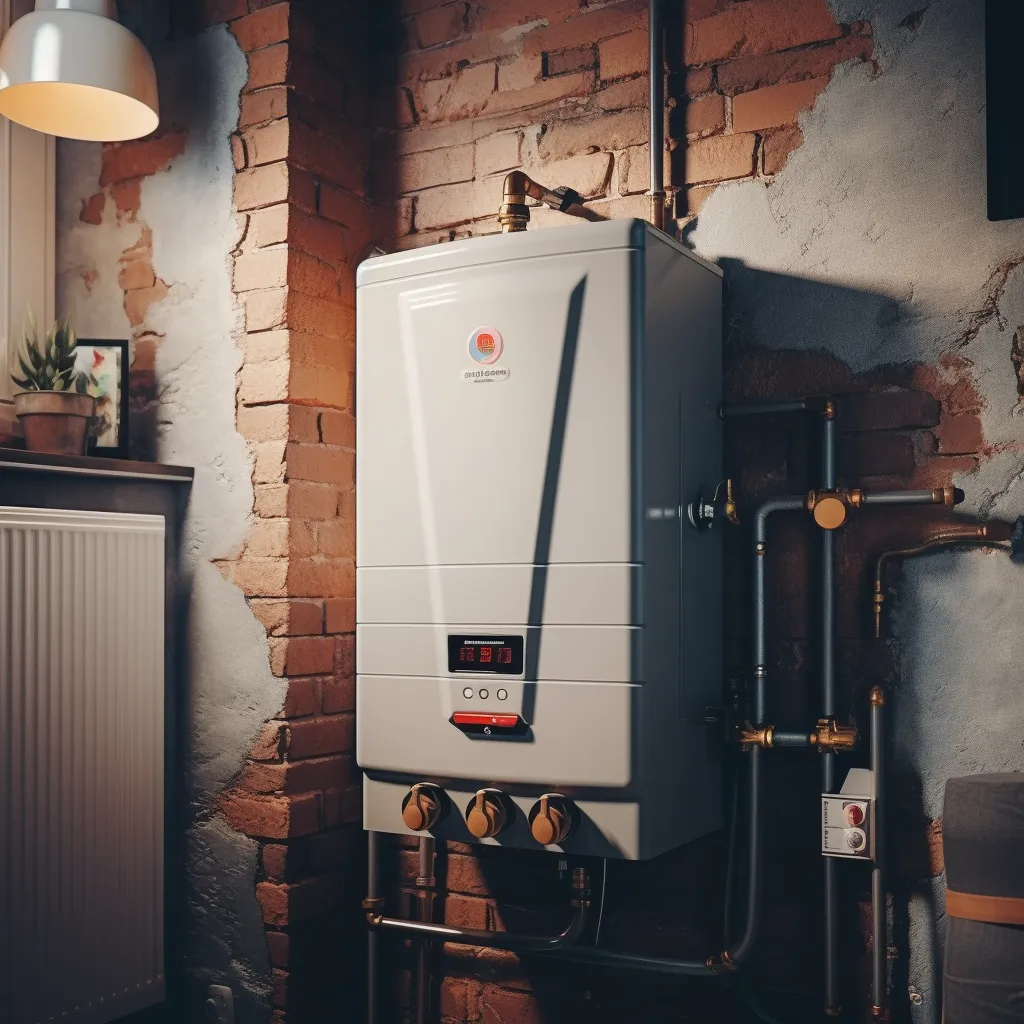
Do you have the finances to buy a water heater?
Choosing the right water heater replacement can be challenging with so many options to consider. However, by keeping your budget and household needs in mind, you can make an informed decision. It's important to factor in energy efficiency, capacity, and how well the unit fits your lifestyle. While some models may have a higher upfront cost, they can lead to substantial savings on energy bills in the long run. Remember, investing in a high-quality water heater can result in significant cost savings over time, so take your time and evaluate all your options carefully. You can try financing a water heater, too.

Replacing a water heater is a significant decision
When it comes to water heater replacement, it is crucial to make a thoughtful decision. Several factors need to be considered, such as efficiency, age, and cost. If your current water heater is more than a decade old or frequently requires repairs, it is a clear sign that it could be time for an upgrade to a more efficient model. Upgrading can result in improved water heater performance and lower utility bills.
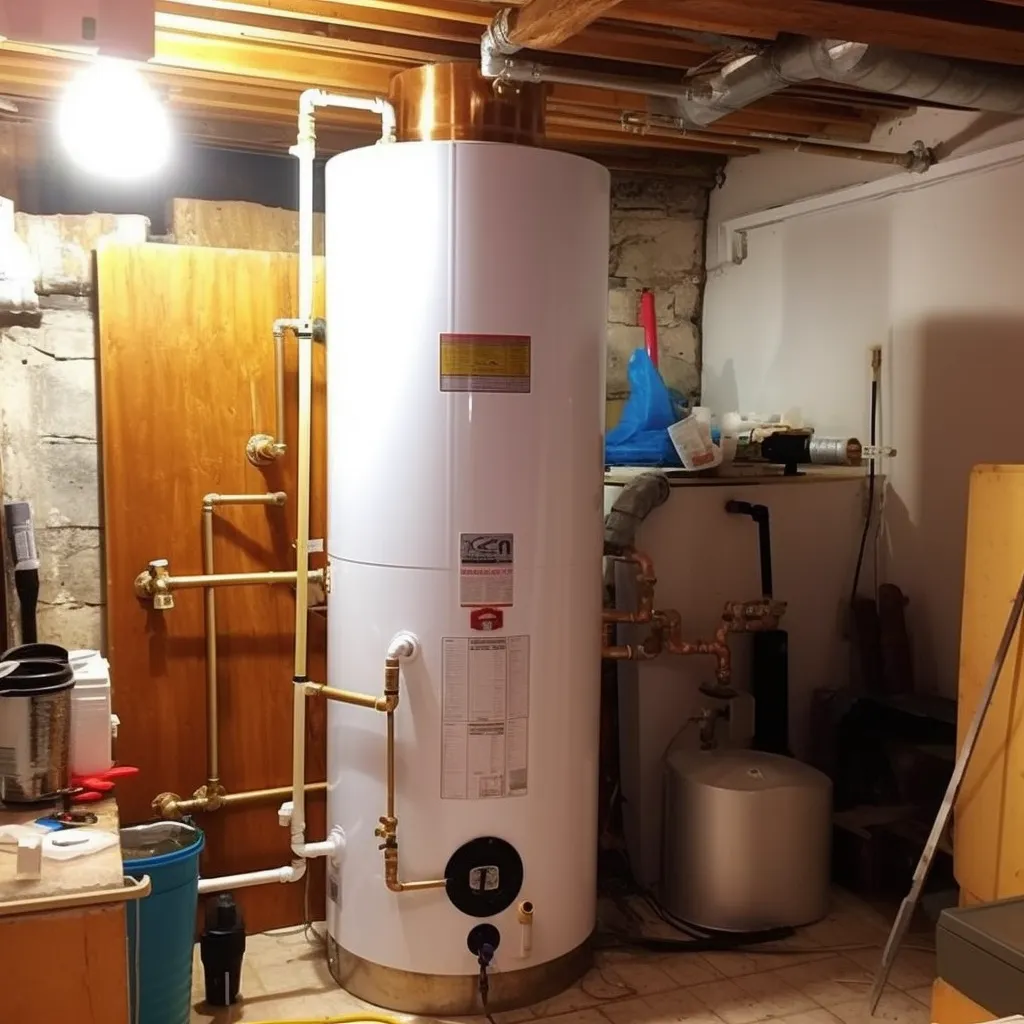
Ways to extend your water heater's lifespan
For a water heater that endures and functions efficiently, it's imperative not to neglect maintenance until it faces a complete breakdown. By adhering to these recommendations, you can elongate your water heater's lifespan and enhance its performance:
Frequent Flushing: Accumulated sediment can impede your water heater's efficiency and trigger potential problems.
Temperature and Pressure Relief Valve (TPR Valve) Inspection: The TPR valve serves as a pivotal safety component, releasing surplus pressure and averting tank rupture.
Insulation: Applying insulation to your water heater and its pipes can diminish heat loss and enhance energy efficiency.
Check for Leaks: Regularly checking your water heater for leaks or dripping water is crucial to prevent any potential damage. Even the smallest leaks can worsen over time and cause significant issues.
Sustaining your water heater is paramount for optimizing its durability. Through consistent maintenance routines, you can prolong its lifespan and enjoy enduring advantages.
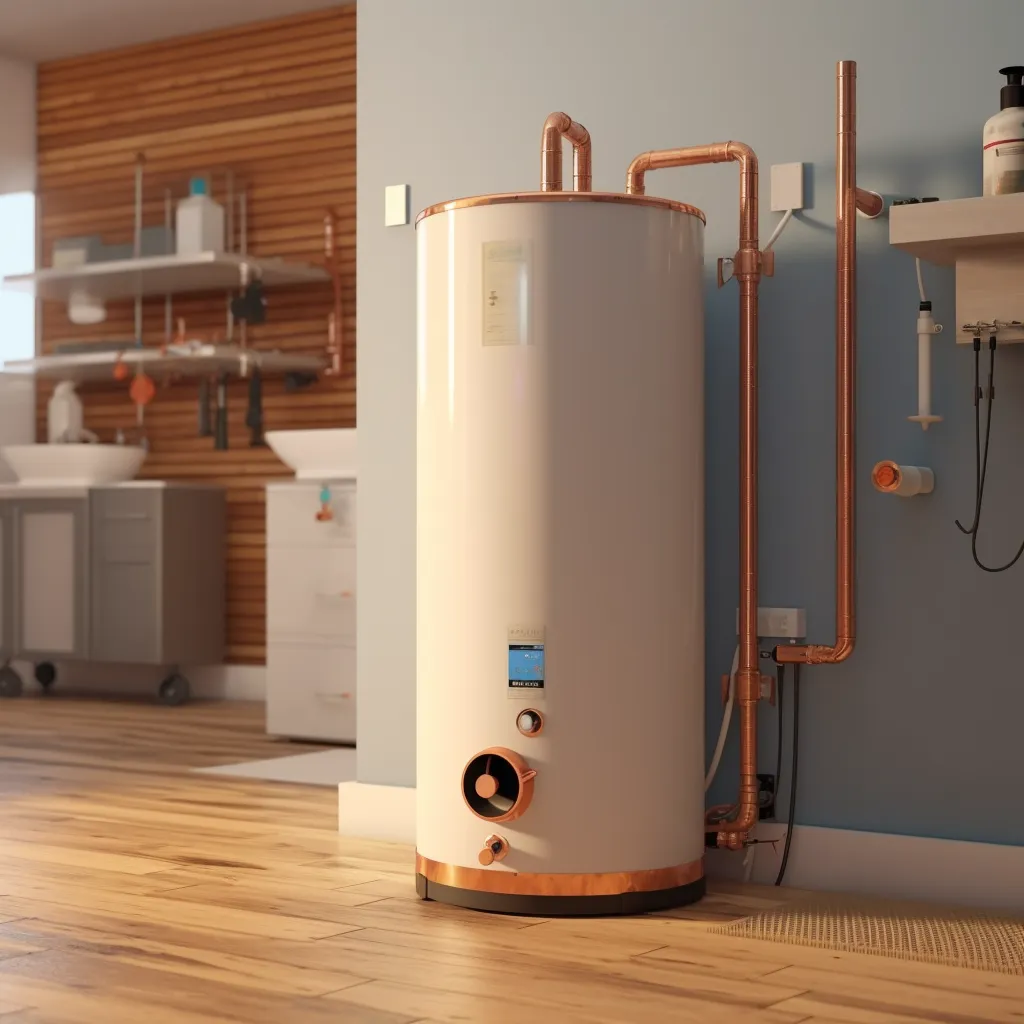
Address any malfunctions
To uphold your water heater's maintenance, promptly attend to any malfunctions. Inadequate hot water or unusual noises may signal issues. Reach out to a specialist for timely repairs, thereby extending the heater's lifespan and yielding long-term cost savings.
Indicators that it's time to acquire a new water heater
When it comes to water heaters, their lifespan is finite, just like any other mechanical device. This also applies to the water heater in your home. If you start noticing specific warning signs, it is a clear indication that it may be time to think about water heater replacement.

Water heaters typically have a lifespan of 10-15 years, so if your current water heater is over 10 years old, it may be time to think about getting a replacement.
If you're hearing popping or gurgling sounds coming from your water heater, it's a clear sign that you may need to invest in a water heater replacement.
If you detect the presence of water gathering around the bottom of your water heater, it is crucial to take action promptly. This occurrence could be a clear indication of a potential leak that needs immediate attention.
If you are experiencing regular disruptions in hot water supply or inconsistent heating, it could be an indication that your water heater is no longer functioning efficiently and may require a replacement.
Water heater replacement is a crucial step to mitigate increasing energy consumption and rising bills. In case you encounter an unexpected hike in your energy costs, it is prudent to contemplate investing in a new water heater.
If you are constantly experiencing the need for repairs on your water heater, it might be a smarter financial decision to consider investing in a brand new, dependable unit. Opting for a water heater replacement could prove to be more cost-effective in the long term.
If you notice rusting or corroded areas on or around your water heater, it is likely a sign that it is no longer functioning properly and may be in need of replacement.
Water heater replacement may be necessary if your hot water has an unusual taste or odor. This could be a sign of a problem with your current water heater, and replacing it can help ensure that you have safe and clean hot water.
Is your water heater struggling to keep up with your household's hot water demands? If so, it may be time for a water heater replacement.
If you notice an unusual taste or odor in your hot water, it might be a sign of a potential issue with your water heater. In such cases, it is advisable to consider replacing it in order to ensure the delivery of safe and clean hot water for your household.
When your water heater fails to meet the demands of your household by consistently providing insufficient hot water, it is a clear sign that a replacement is necessary. Your current water heater may be struggling to keep up with your needs and may not be sufficient for your household any longer. It's important to address this issue promptly by replacing the water heater with a more efficient and reliable option. A new water heater will ensure that your household has an adequate supply of hot water at all times.

When it comes to replacing your water heater, it is essential to be vigilant and pay attention to warning signs. By doing so, you can make an informed decision and ensure a steady and dependable supply of hot water for your home.
What is the expense of replacing a water heater?
When considering the expense of replacing a water heater, there are various factors that affect the overall cost. These factors encompass:
The type and size of the unit play a crucial role in determining the cost. The type of water heater you select, be it a traditional tank-based heater or a tankless unit, will impact the price. Similarly, the size or capacity of the water heater needed to meet the hot water requirements of your household will also affect the overall cost.
Opting for an energy-efficient model may come with a higher upfront cost. However, the initial investment can lead to significant long-term savings on your energy bills. While these more efficient water heaters may have a higher price tag initially, the cost-effectiveness over time makes them a worthwhile investment.
The cost of installation can be influenced by several factors. One of these factors is the complexity of the installation process itself. Certain considerations, such as accessibility, venting requirements, and required plumbing modifications, can all contribute to the overall expense of the installation.
Water heater replacement demands a substantial financial commitment, with costs fluctuating based on multiple factors. In the case of conventional electric water heaters, replacements generally span from $500 to $2,500. Conversely, repair expenses for tankless water heaters can be steeper, falling within the range of $1,000 to $3,500. Given the substantial outlay linked to water heater replacement, it's prudent to contemplate the enduring advantages. Selecting a top-notch unit can result in diminished utility costs and enhanced energy efficiency, rendering it a worthwhile long-term investment.
Commonly asked questions regarding water heater replacement and installation
If you're considering water heater replacement and installation, you may have some common questions. We'll address a few of them here to provide you with valuable guidance.
"What capacity water heater should I consider?
What's the usual duration of the installation process?
Which fuel type is advisable for my water heater?
What's the estimated expense for the replacement?
Is it imperative to enlist professional help for the installation?"
When you're in need of water heater replacement or installation, it's essential to take your own requirements into account. To ensure you get the best advice, it's crucial to seek the expertise of licensed plumbers. They can help you choose the right size and type of water heater that is most suitable for your specific household. Moreover, they can give you an estimate of the installation expenses and any extra tasks that might be necessary.
Ways to economize when replacing a hot water heater
Substituting your hot water heater doesn't necessarily entail extravagant expenses. Adhere to these cost-saving strategies to guarantee an economical replacement while upholding uninterrupted hot water access for your residence:
It is essential to conduct careful research to find the most suitable option for your home. You should explore both traditional electric models and tankless systems to determine which one best fits your requirements and personal preferences. By considering these factors, you can make an informed decision about replacing your water heater.
It is important to consider the priority of energy efficiency. Opting for an energy-efficient model can result in significant long-term savings by lowering your monthly utility expenses. To ensure optimal energy consumption, be sure to choose a water heater with a high Energy Factor (EF) rating. By selecting a water heater with lower energy consumption and a superior EF rating, you can enjoy enhanced efficiency and reduced utility bills.
When you're in the market for a water heater replacement, it's essential to shop around and compare prices from various retailers and suppliers. By doing a little research, you can ensure that you get the best deal possible.
Although tankless water heaters might come with a heftier initial price tag, they deliver substantial energy savings in the long run. Factor in these enduring advantages when arriving at your decision.

Reasons to choose professional installation over DIY for your water heater
When considering water heater replacement, it may seem like a smart move to do it yourself in order to save money. However, it's crucial to understand that this can actually be a complicated job. While it might be tempting to take on the installation yourself, it requires specialized expertise and know-how that only professionals possess. Whether you decide to go the DIY route or hire a professional, it's important to consider that professional installation can actually save you a substantial amount of money over time.
Professionals bring the expertise needed to ensure accurate installation, adhering to essential codes and regulations. Furthermore, professional installations often include warranties, offering you additional peace of mind and a seamless experience.
Conversely, opting for a DIY approach may seem enticing, but it is not advisable. DIY installations raise the probability of mistakes, which can result in additional costs such as repairs or heightened energy consumption.
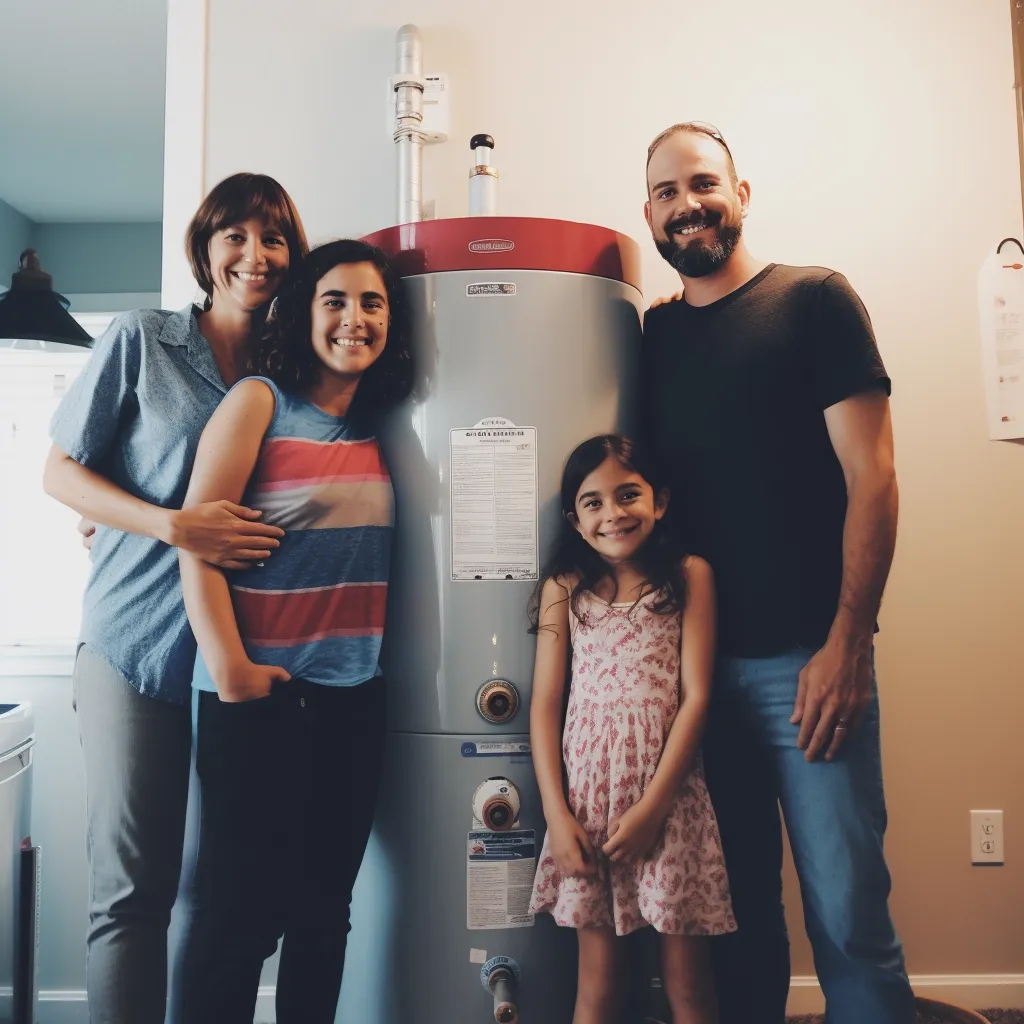
Pointers for finding a water heater pro
When considering water heater replacement, it is essential to hire a licensed professional who can handle the installation. Here are some key points to keep in mind during the selection process:
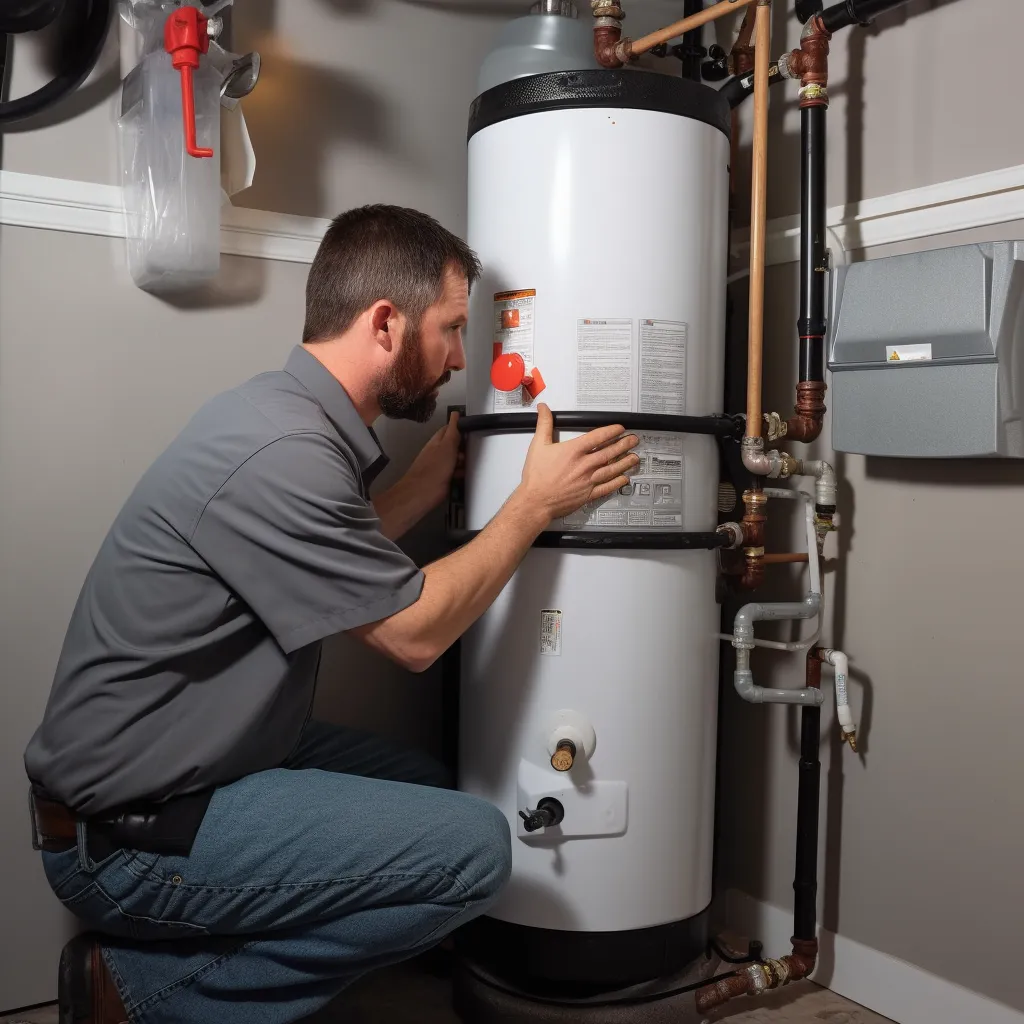
Examine credentials and confirm their licensing.
Take into account their experience and proficiency.
Read reviews to evaluate their reputation.
Verify insurance coverage for added protection.
Acquire comprehensive cost estimates from several professionals.
Inquire about any warranties or guarantees they provide.
Ensure they will manage permits and adhere to regulations.
Select a professional who communicates effectively and with transparency.
Contact Us
GET IN FULL TOUCH
PHONE:+(480) 470-3216
EMAIL:
adam@waterheaterchandler.com
Mil-Spec LLC
Chandler, AZ 85226
